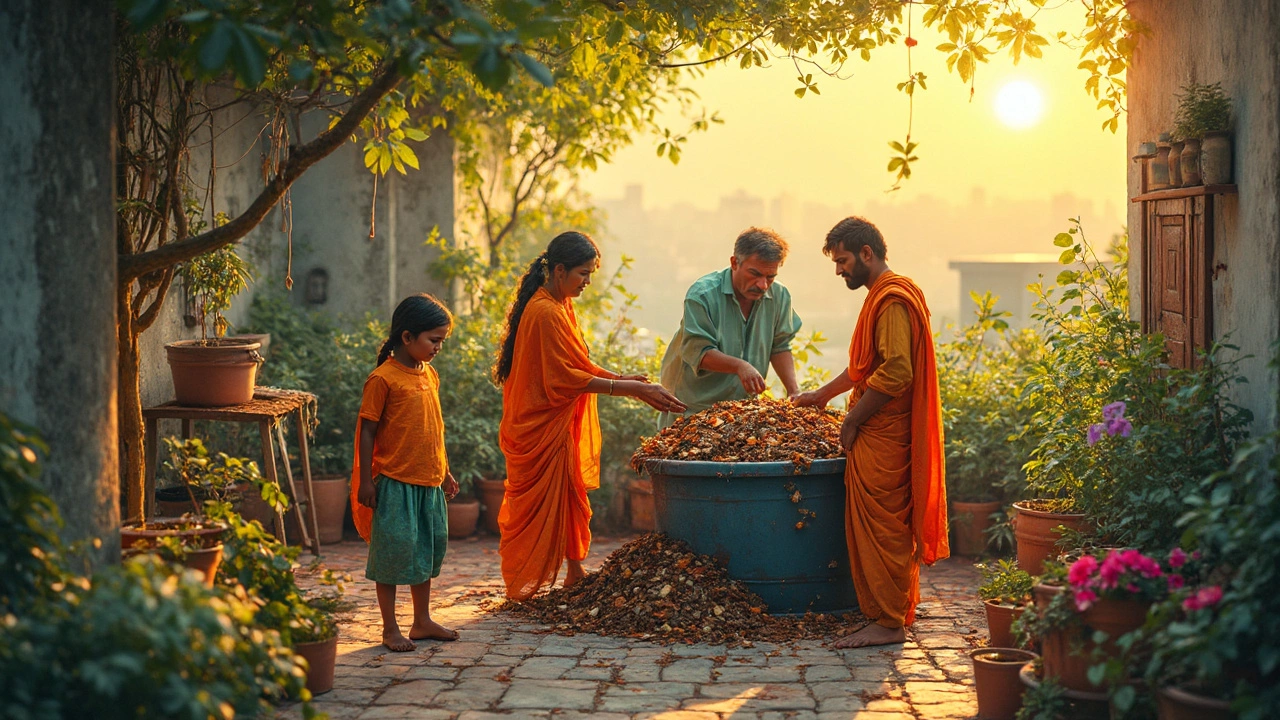Composting is a great way to recycle organic waste and enrich soil, but it's not without its challenges. From smell and pest issues to the time commitment and space requirements, there are several drawbacks to consider. However, with the right tips and tricks, you can overcome these obstacles and have a successful composting experience. Here, we explore the common issues faced in composting and offer practical solutions to make it work for you.
Composting Drawbacks: What You Need to Know Before You Start
When you think of composting, the natural process of breaking down organic waste into nutrient-rich soil. Also known as organic recycling, it’s one of the simplest ways to cut kitchen waste and feed your garden at the same time. But here’s the truth most blogs won’t tell you: composting isn’t magic. It works great—until it doesn’t. People get excited, pile up leaves and coffee grounds, and then wonder why their pile smells like a swamp or attracts raccoons. The truth? Every method has drawbacks, and ignoring them wastes time, money, and your patience.
One big issue is odors, unpleasant smells from improper compost balance. If you toss in too many food scraps without enough dry leaves or cardboard, your pile turns anaerobic. That’s when it stinks instead of sweetens. Then there’s pests, rats, flies, and ants drawn to exposed food waste. You don’t need a full-blown infestation—just one rat digging through your bin to ruin your whole system. And don’t forget time, how long it takes for materials to fully break down. If you’re expecting rich compost in two weeks, you’ll be disappointed. Most piles take 3 to 6 months, even longer in cold weather. And if you live in a humid place like Kerala or Maharashtra, moisture control becomes a daily chore.
Some folks try composting because they think it’s zero-effort. It’s not. You have to turn it. You have to monitor moisture. You have to avoid meat, dairy, and oily foods—even if your neighbor says it’s fine. And if you’re using a small balcony bin, space limits what you can add. A full-sized backyard pile? That’s one thing. A 10-gallon bucket on a 5th-floor balcony? That’s another. The good news? Most drawbacks are fixable. Cover your bin. Balance your greens and browns. Use a tumbler. Keep it covered. But you need to know the problems first. Otherwise, you’ll quit before you ever get results.
Below, you’ll find real stories from gardeners who’ve dealt with smelly piles, slow decomposition, and pest invasions—and how they fixed them. No fluff. No theory. Just what works in Indian homes, balconies, and small farms. Whether you’re just starting or you’ve been composting for years, you’ll find something that helps you do it better.
